In the market for new tools or tech and wondering what the pros use?
Here are some popular tools composers love. Thanks so much to Nicholas Connors, Carmel Dean, Noel Katz, Leo Schwartz, Stephen Schwartz, Matthew Sklar, Eric Sirota, and Georgia Stitt for contributing their faves!
1. What Music Notation Software Do You Use?
The clear winner here was Finale software, which is used by most of the composers I asked and is considered the standard in the New York musical theatre industry (this is the software I use as well). The only other platform mentioned was Sibelius, the notation software of choice for Stephen Schwartz.
While there are other less expensive music notation software programs available, it is helpful in the long run to use something that is industry standard to make the process of sharing and collaborating smoother. When Stephen Schwartz was working on Schikaneder at Vienna’s Raimund Theater, orchestrator David Cullen provided the arrangements for a thirty-five-piece orchestra. Cullen would email Schwartz orchestrations, and Schwartz would make adjustments using Sibelius.
We would go back and forth until we had a finished orchestration. I loved working that way. And it was so satisfying to walk into the first orchestra read-through and have it sound exactly as I wanted. I wrote the overture on Sibelius because you can’t play it with just two hands at a piano. So I could play it back for myself and make changes till I had it.”
~Stephen Schwartz
2. What is Your Keyboard of Choice?
Acoustic. Every. Time.
Everyone I talked to agreed that music notation software is a must, but not everyone felt the same need for a digital workstation. In fact, most preferred working on an acoustic piano, insisting that the naturally weighted keys and pure sound just feels better and more conducive to composing. Near and dear to these composer’s hearts are their Bösendorfer Grand (Stephen Schwartz) and Steinway Parlor Grand (Eric Sirota).
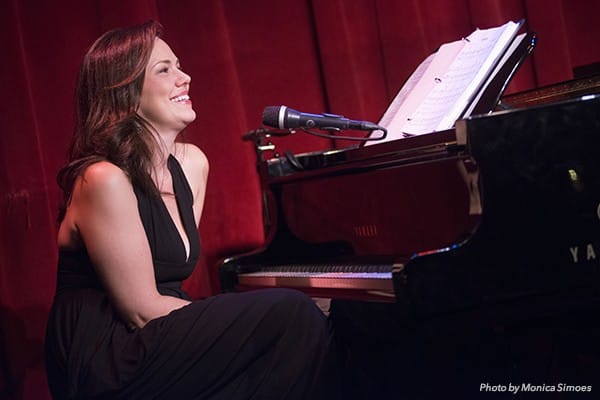
I work on a real piano. I only play keyboards when absolutely necessary.
~Georgia Stitt
Full Size Digital Keyboards
Those that also use digital keyboards had varied preferences. Some love a full 88-keys with the newest bells and whistles, while others just need something small and portable to get the job done.
For a top-of-the-line digital piano, the Yamaha Clavinova CLP-565GP is the instrument of choice for Matthew Sklar. My husband (composer Kelvin Reed) has the Yamaha MOXF8/MODX8, a robust digital workstation.
Mini Keyboards
If you want to entertain the muse when she strikes or make music when traveling, small keyboards are available in 39-, 44-, and other smaller key configurations.
Nick Connors has a handy little mini midi keyboard (midiplus AKM320) he throws in his Jansport backpack for work sessions or trips. How perfect is that!
Leo Schwartz uses the Nektar Impact LX49+ Keyboard Controller as his go-to all-purpose keyboard.
Carmel Dean, Noel Katz, and Leo are also fans of the M-Audio series, using the compact M-Audio Key Station 32 and M-Audio Oxygen 49 for traveling or to fit nicely alongside a laptop on their desk.
3. What Music Production Software Do You Use?
After the song is conceived, composed, and notated, composers often build instrumental and vocal tracks for demo recordings.
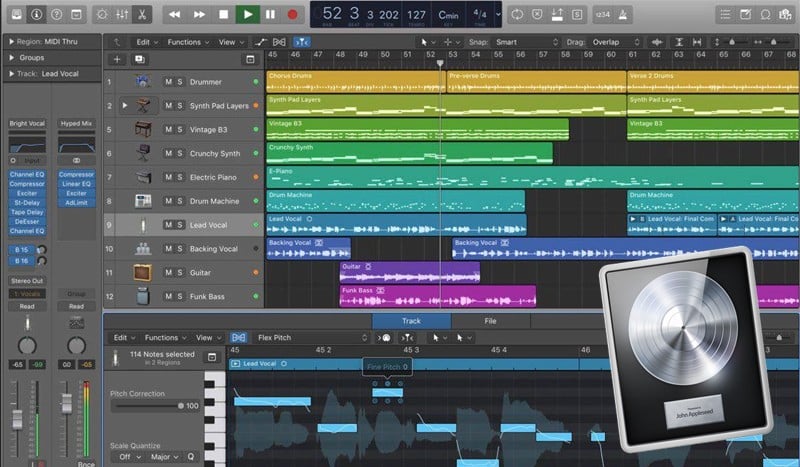
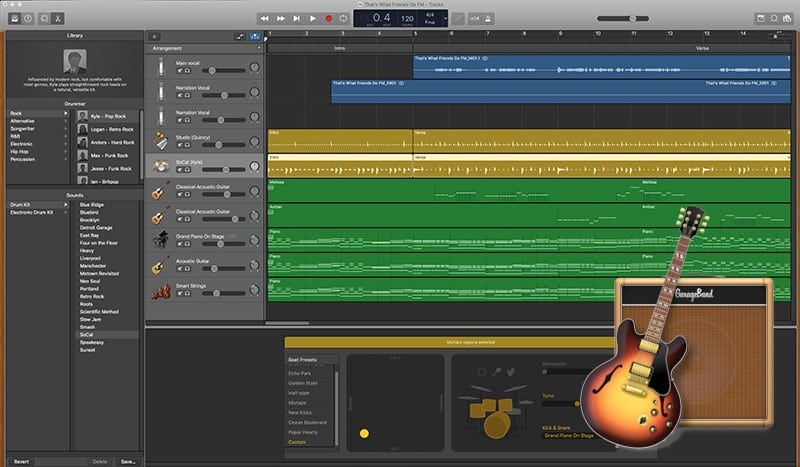
For the music production tool that composers love, the top choice by our panel was Logic Pro, a robust Mac application and the big brother to the popular Garageband. I use Garageband, as does Georgia Stitt in her home studio. It has been sufficient for everything I have wanted to do. Logic does have more features and advanced tools, but I would suggest giving Garageband a spin first. If you end up maxing out Garageband and want more functionality, your files will open right up in Logic Pro (they’re bros remember?).
4. What’s your current favorite piece of tech?
New apps, music software, and better acoustic-digital crossover instruments are being developed all the time, so tech tools composers love can be outdated or replaced quickly.
As of this article, there was one favorite item that everyone couldn’t live without (at least for those who use tech)—the Voice Memos iPhone app! Here’s how to use it.
If you’re on an Android device, check out the Voice Recorder.
Honestly, as dorky as it sounds, [I love] the voice memos app on my phone! I have hundreds of voice memos of me working out various parts of songs or saving new melodies to revisit, so I use it all the time.
~Nicholas Connors
I must be dorky too…I do the same thing. My muse usually shows up when I’m out running, so I have many ridiculously out-of-breath recordings of new song ideas on my phone. They might be a mess, but if I didn’t get them down while they were on my mind, I’d lose them forever.
For those of you who love geeking out on pitch correction and perfecting your audio output, you might want to check out Melodyne. It’s at the top of The Prom composer Matthew Sklar’s tech list.
Non-Techie Tools Composers Love
As mentioned above, not everyone loves tech. Some are totally kicking it old-school. Composer Noel Katz is pretty committed to using as little tech as possible. When asked about his favorite tool, it was this—
—a good old fashioned PENCIL! Old fashioned, in that these Palomino Blackwing Pencils have been the favorite for over 80 years! Even Stephen Sondheim has composed exclusively with Blackwings since the early 1960s.
I’m curious. I’m jumping over to Amazon to order a set right now.

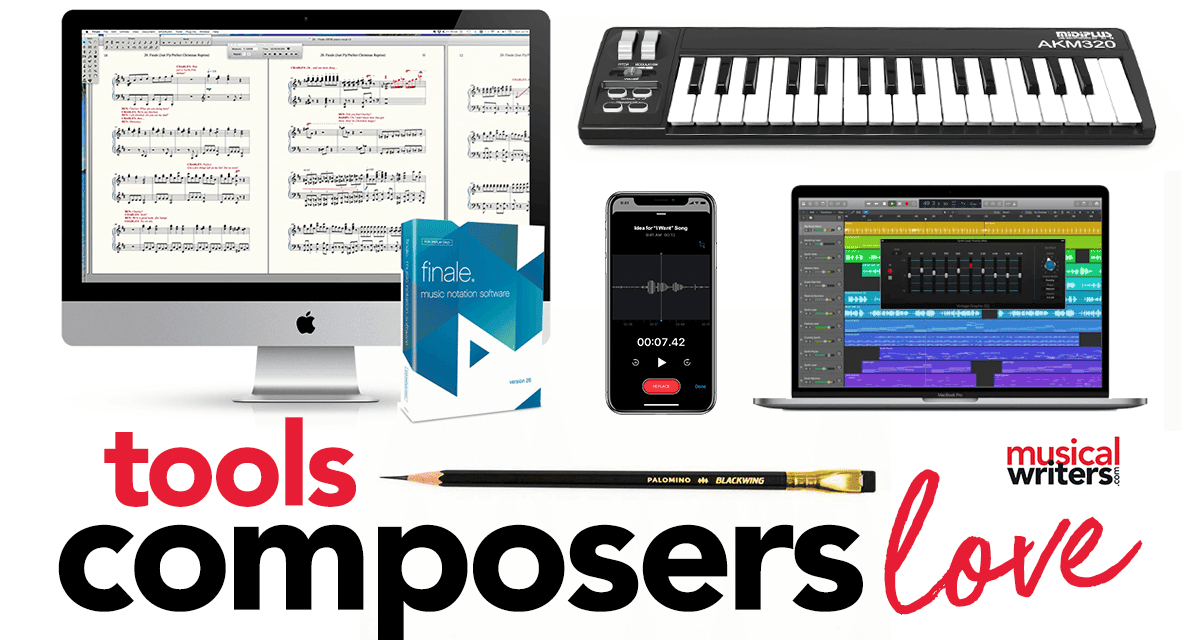
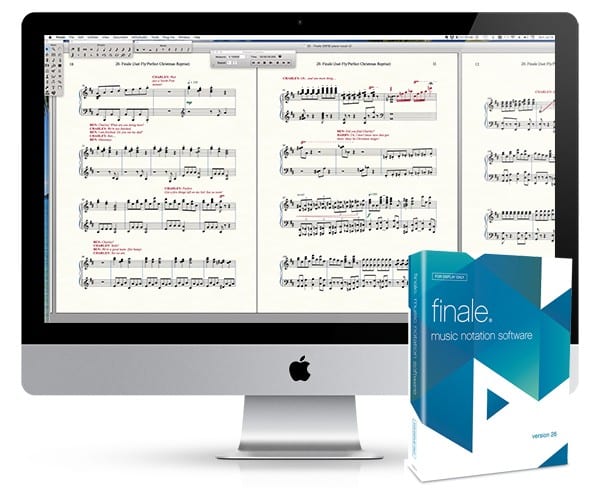
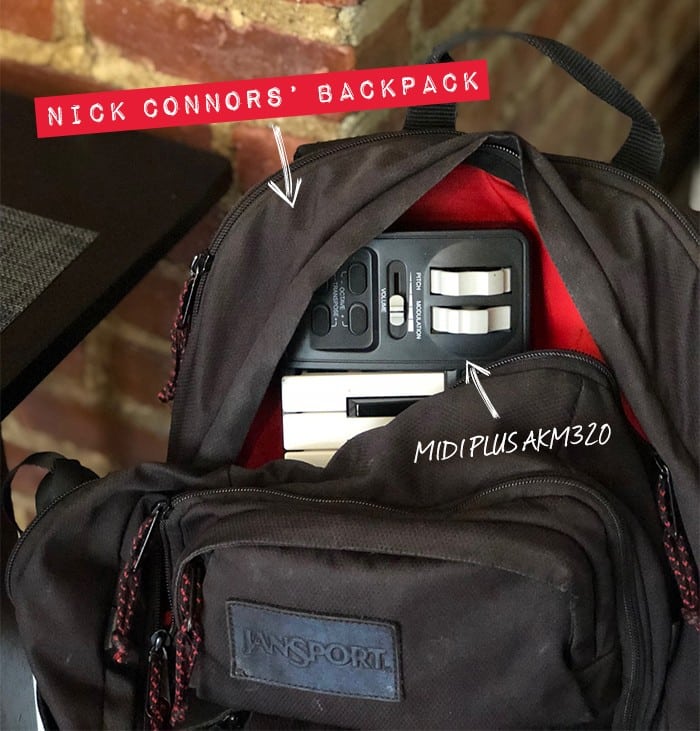
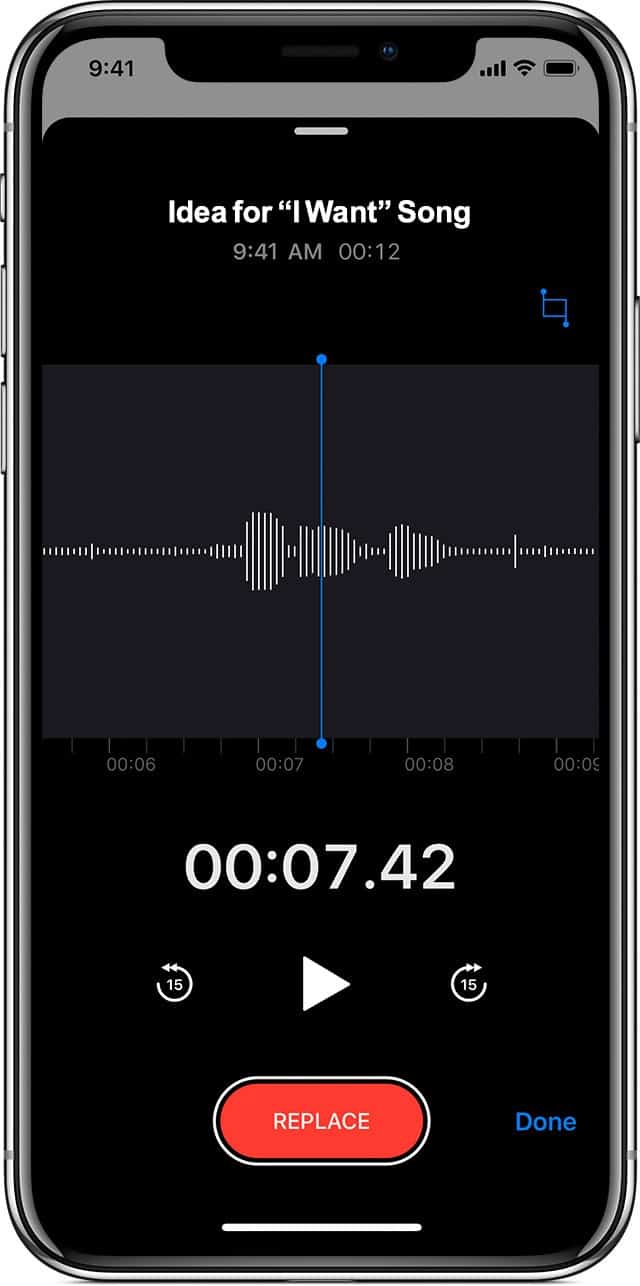
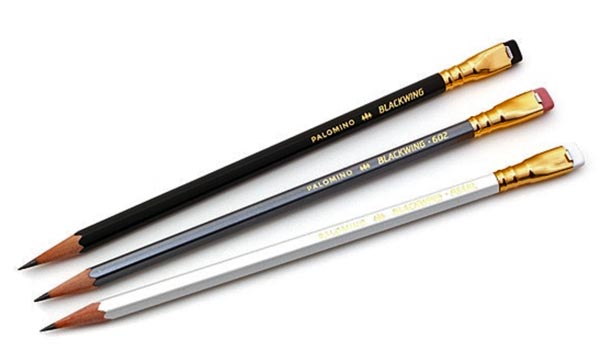

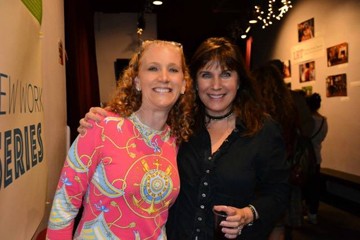
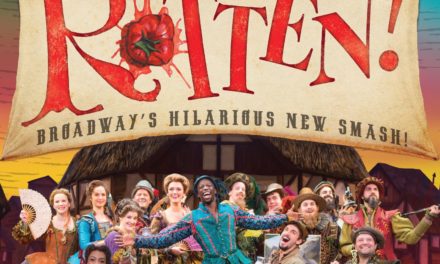


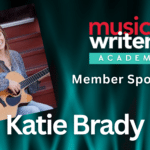
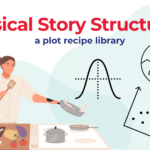





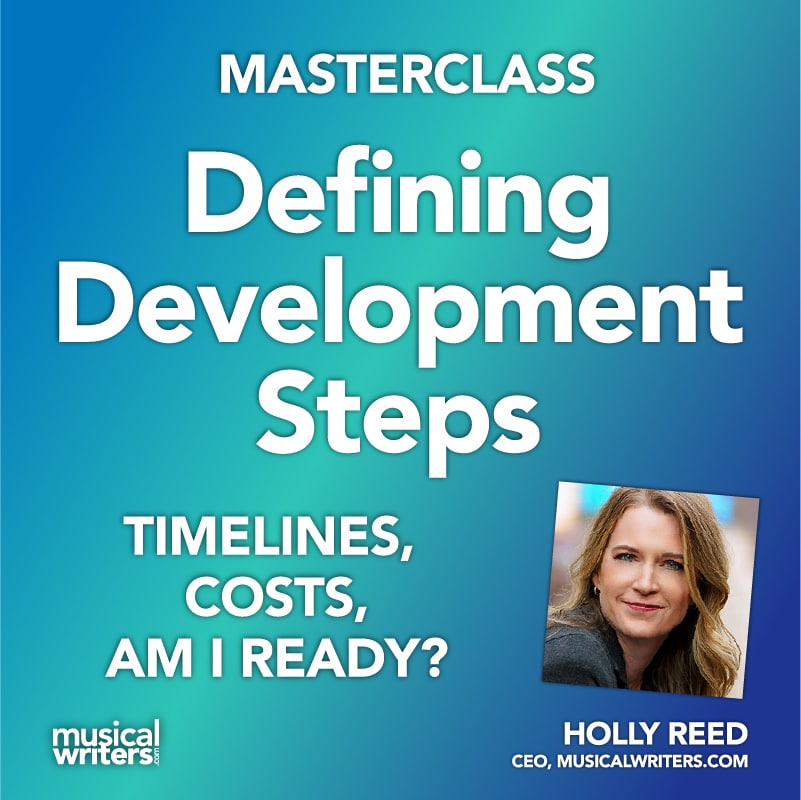

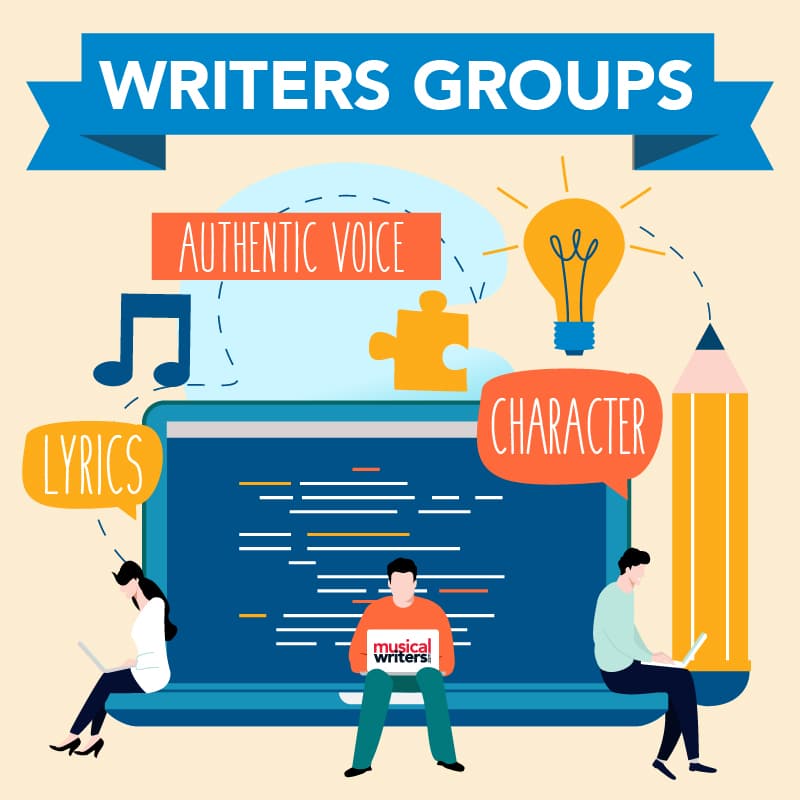


I use Sibelius, Logic Pro, and a Roland X8. If I’m out and about I use GarageBand on my iPad.
Been a Sibelius user as a composer and orchestrator for 20 years now, especially since getting the NYC Theater bundle. I have just bought Finale to try and get a feel from the UK for what everyone in NYC likes it for.
For demos I have Studio One and a mix of EastWest, PreSonus and other sound libraries. For composing though I’m with Noel Katz, Balkwing 602s on D’addiaro LL 12S manuscript and my Yamaha Clav (which is getting a little ropey now).
An upright piano works for me with a good pencil and a cassette recorder.
I mostly use logic, but a good piano patch so I can record ideas before I produce!
Band in a Box for sure. It adds a lot of computer smarts to help make a virtual band to play your creations, and they sound great.
Dorico by Steinberg is my notation software
Cakewalk (DAW) is free. I write on guitar. My partner scores on finale. The best tool, though, is the daily quota. Every day, at least a lyric.
Sibelius for piano-vocal scores. Have sent Sibelius MIDI files to my audio studio engineer who builds them into “Steinway” sounds for later recording the vocals. Pencils? The Tombow Mono 6B gives a nice dark note dab and stroke on my sketchbook (D’Addario archives) 12-staff pages, but their useful mark-making needs constant sharpening (iPoint by Westcott); my Blackwing Eras doesn’t make as dark a mark, but its harder lead requires less sharpening, and it has a clean and long-last eraser. VoiceMemos have allowed me to improv tunes while sitting in my car in parking lots, including checking lyrics sent by email while waiting for friends and family to return from medical and hardware appointments:)
One more handy tool: Having a 37-key iRig plugged into my Mac, between my Apple keyboard and the Mac, allows for quick keyboard notation entry, without having to reach to my left for noodling on the used Yamaha Motif that a generous friend provided on an indefinite loan (after he fell in love with his new 88-key Korg.)